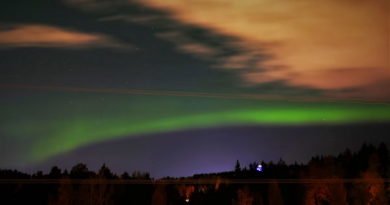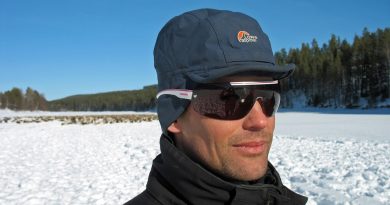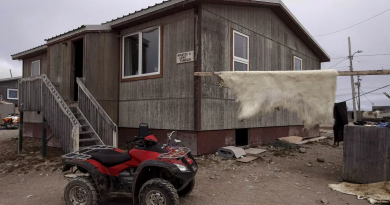Illegal hunting of caribou herds along Northwest Territories winter roads running rampant
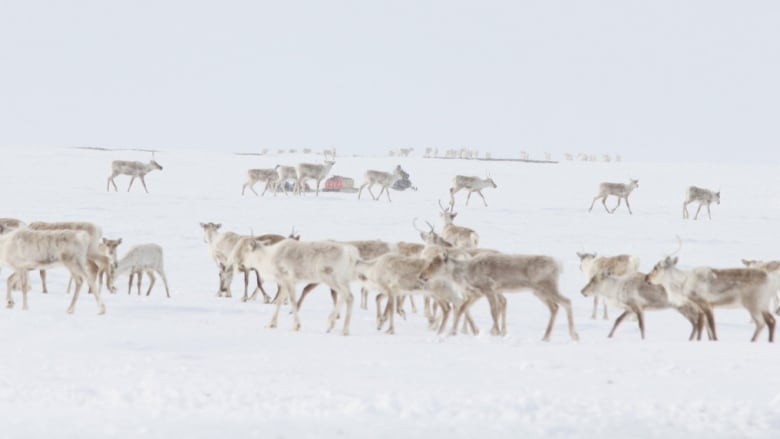
Along the winter road to Northwest Territories’ (N.W.T.) diamond mines, hunters are irresponsibly and illegally harvesting from vulnerable caribou herds at a rate unseen for decades, according to the Beverly and Qamanirjuaq Caribou Management Board (BQCMB).
Earl Evans, chair of the BQCMB, raised alarm about the extent of unsustainable harvesting in a press release Monday and highlighted how it could impact the Beverly and Qamanirjuaq caribou herds, along with the communities that depend on them.
“I saw every regulation in the book being violated,” Evans said in a press release.
“Snowmobiles chasing caribou, people shooting into the herds, hunters using the wrong calibre of rifle required to make a clean kill and/or not retrieving their kills, pollution, and outright dangerous hunting.”
Irresponsible hunting at worst in 50 years: chair
The winter road allows easy access to a vast area, difficult to be monitored by a limited amount of conservation officers, creating a “situation in which enforcement and harvest monitoring efforts are inadequate,” the press release reads. Large numbers of hunters are descending into the area.
As caribou appear plentiful and easily accessible to inexperienced hunters, respectful hunting practices tend to decrease.
“It happens year after year,” Evans said in a press release. “But in my 50 years observing this type of activity, this is the worst I’ve seen.”
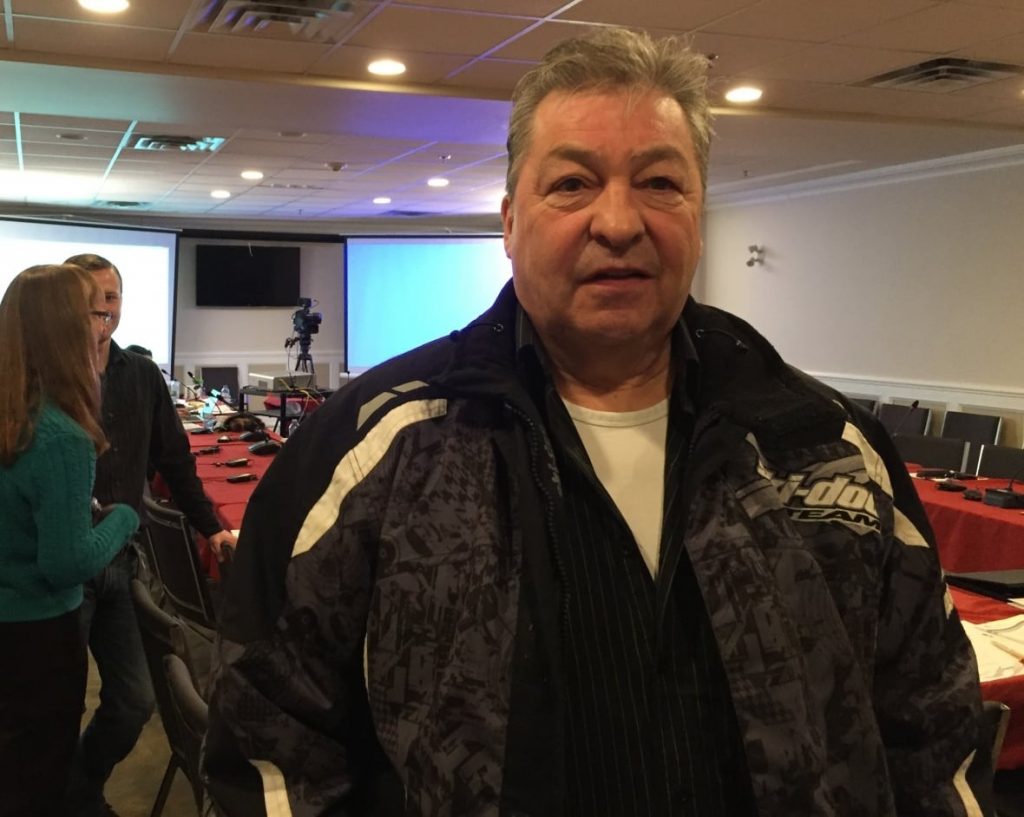
The BQCMB is a co-management board established in 1982 to protect two herds of barren‐ground caribou. The Beverly and Qamanirjuaq herds’ winter ranges extend into three provinces and two territories, and Dene, Inuit, Métis, and Cree communities depended on the herds for food.
“People need to understand that the only way for the caribou harvest to be sustainable is to hunt respectfully,” Evans says in the release. “We all share in this responsibility to make sure there are caribou for the next generation.”
‘Doomed to repeat history’ if action is not taken
In a 2018 report on the Beverly caribou herd, Evans noted how the population of the nearby Bathurst caribou herd declined 96 per cent over the past 30 years. He said the Beverly herd needs greater protection from unsustainable hunting, or they could face a similar fate.
“If you don’t learn from history, you are doomed to repeat it,” Evans said. “Now is the time for the Board to really ramp up its educational messages that caribou herds may not last forever unless people do everything they can to help caribou now.”
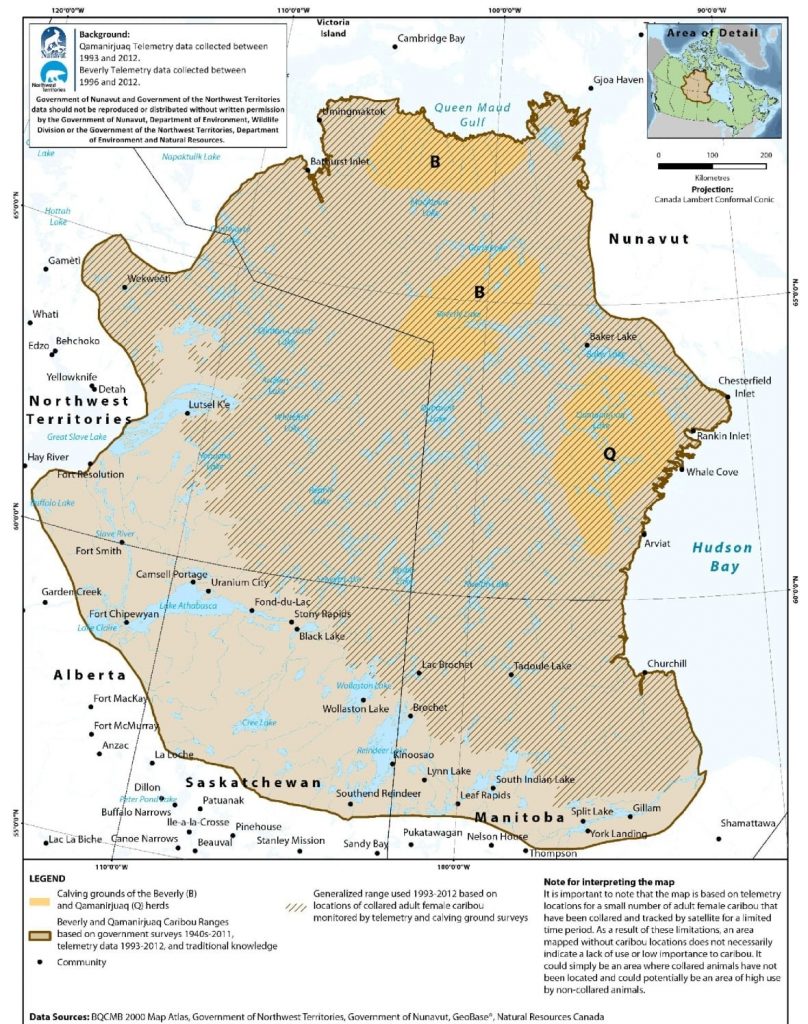
Hunting season peaks in March, so Evans said it is essential to create more awareness and educate hunters now, and protect the caribou herds from further population decline.
“I feel bad for the hunters out there that hunt responsibly and are in the same area where this is happening,” Evans said.
A press conference is being held today at noon about the ongoing caribou hunting season and continuing issues along the ice road with disrespectful and illegal harvesting practices.
Evans, along with Environment Minister Shane Thompson and Lee Mandeville, a wildlife officer with the department of Environment and Natural Resources, will be present.
Related stories from around the North:
Canada: George River caribou survey shows slight uptick in eastern Canada but hunting ban remains in place, Eye on the Arctic
Finland: Miners hunting for metals to battery cars threaten Finland’s Sámi reindeer herders’ homeland, Yle News
Greenland: Greenland issues new exploration, prospecting licences to Anglo American, Eye on the Arctic
Norway: Minister downplays environmental impact of planned mine in Arctic Norway, The Independent Barents Observer
Sweden: The Arctic Railway – Building a future or destroying a culture?, Eye on the Arctic
United States: Biden, Trudeau agree to ‘safeguard’ caribou calving grounds in Alaska refuge, CBC News

